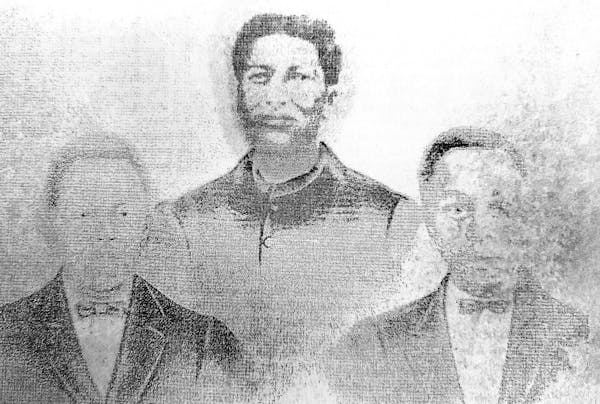On May 14, my family buried my aunt, Sarah B. Harrigan. As I — along with her other nephews — carried her casket that day, I whispered my gratitude to the woman who demanded her nieces and nephews understand the value of their history and the history of those around them.
I would have never known about my great-great-great-grandmother, Mary Ann Key — an enslaved woman in the 1800s — had it not been for my aunt's diligence, research and commitment to our family's story. That creed is one I still embrace in this critical chapter of Minnesota history.
There is a rising — and hollow — sentiment here that suggests the work is done because Derek Chauvin is in prison for George Floyd's murder. But the last year only revealed, to some, the structural and systemic racism that remains. It did not, however, fix those issues.
Amid a growing chorus of folks who've decided that teaching the history of marginalized communities is somehow harmful to white kids, it has never been more important to combat and reject a sense of completion following the Chauvin verdict. We must continue to learn and to act. These inequities, and the racism that guards them, won't just evaporate. They have to be identified and attacked.
That's why I'm happy to announce — along with our partners at the Star Tribune, Friends of the Hennepin County Library and the Hennepin County Library — the next book in the Mary Ann Key Book Club: "Minor Feelings: An Asian American Reckoning" by Cathy Park Hong.
Our goal in selecting this book is to demand respect for the perspectives of our Asian American and Pacific Islander (AAPI) community — a community often overlooked in conversations about the nonwhite experience in Minnesota and beyond.
The "Stop AAPI Hate" movement has highlighted tragic encounters throughout the country. Based on my conversations with my friends and colleagues within the AAPI community — a community that is not monolithic — I know the headlines don't tell the full story of a group that has been targeted in a recent spate of violent, high-profile incidents.
"Minor Feelings" is a gripping account from Hong about her life in a world that views her and others like her as the "model minority," a label that minimizes their experiences.
"For as long as I could remember, I have struggled to prove myself into existence," Hong says in the book. "I, the modern-day scrivener, working five times as hard as others and still I saw my hand dissolve, then my arm. Often at night, I flinched awake and berated myself until dawn's shiv of light pierced my eyes. My confidence was impoverished from a lifelong diet of conditional love and a society who thinks I'm as interchangeable as lint."
"To prove myself into existence" is a sentiment nonwhite Minnesotans understand. Daily, we ask, "Do you see me?" I believe the experience Hong describes is also attached to the position connected to an Asian community that has been used as a pawn in political discourse about race. For generations, African Americans have heard white people describe the Asian community as the standard. The "Why can't you be more like them?" attitude has bred a historic barrier between our two communities.
But these conversations fail to center a group that's often praised or blamed but rarely heard. It's time to listen and commit to eliminating the stereotypes and assumptions that have left members of the AAPI community feeling what Hong describes as "not white enough nor black enough."
It's also important to make room and share the floor in this collective fight for equity. We had a successful virtual panel — nearly 1,000 attended — and a series of fruitful community conversations with our first book, Isabel Wilkerson's "Caste." We hope to have the same support with "Minor Feelings," our fall panel and local conversations, all led by AAPI leaders from the Twin Cities. We'll announce the details in the coming weeks on Hennepin County Library's Mary Ann Key Book Club website, where you can join the book club and get more information.
Knowledge is the seed of progress. That's what my Aunt Sarah taught me. At a family reunion in the 1990s, she called me up and handed me the "A" encyclopedia. Just the "A." She'd picked up an entire set on one of her Saturday rummage sale runs.
She was a teacher who loved history and a Black woman who turned her basement into the first African American museum I'd ever visited. Her request that day? She wanted me to write about every meaningful subject in that "A" encyclopedia. I promised I would, but I never finished. Still, I always remembered her emphasis on education and action. She, however, did not finish there.
She wanted her nieces and nephews to do something with the information. She wanted us to be better toward one another.
As we read "Minor Feelings," I hope we learn and I hope we grow.
And then, we must decide to see those who feel hidden among us.

Medcalf: Exonerated of murder, author will speak at our Minneapolis book club about 'life and freedom'
Medcalf: Will plans to restore St. Paul's Rondo replace what was stolen?
Medcalf: Young adults' demand for work-life balance offers lessons for us all

Medcalf: Were up to 200 kids really actively fighting in Roseville?


